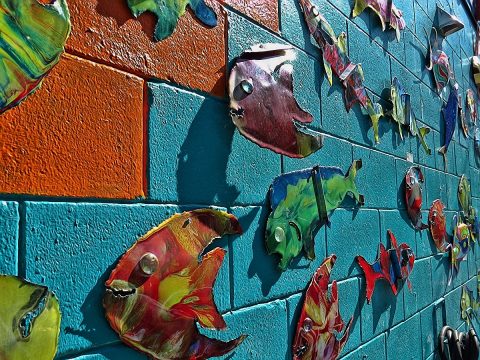There are many moments of indirect dialogue throughout the story, which are really well done. Why did you choose that form for this story?
Thank you! I don’t think I could have built this world as well without the indirect dialogue, which let each of the characters “speak” in such a short story. The indirect dialogue helped each of the other characters be on the page without incorporation of extensive flashbacks. The expansion of that dialogue into scenes might be in another story I write, but I wanted to keep this story focused on this single night in Jane’s life, when she is alone and trying to reconfigure her family dynamics. Now that her brother has left, Jane feels hurt, angry, and abandoned, and has to come to terms with a new role she’ll play in the household. The indirect dialogue helped me render the various pressures on Jane—Jane hears her father’s expectations, her mother’s grief and lack of support for her brother’s decision (which could transfer to Jane if she chooses to reject her parents’ wishes as her brother did), and Jane hears that her brother didn’t feel he had any other choice besides joining the army. Including bits of her conversations with her family was an easier and more efficient way for me to portray each character’s response to Kevin’s departure.
Jane goes to the pond to find luck but comes away with something else; I’d call it resolve. Where do you think she might go from here?
I think there is some resolve. I think this experience forces Jane to realize what she can be capable of by herself. To be honest, I am still ambivalent about the ending. Up until the last day, that was the hardest aspect of the story! My intent was to show Jane experiencing the insight that there will be moments in her life when she can only rely on herself. I wanted her to think more about the extent to which her brother relied on her. Her maternal instinct kicks in at the end—she wants to care for the lame dog. She relied on her brother’s reliance on her, which made her feel more purposeful and empowered in this household. But she cannot rely on her brother to comfort her, or as a figure for her to comfort. The story isn’t just about her parents understanding Kevin’s independence, but Jane’s, too.
I love how much emotion you are able to contain within this story. Was that something hard to grapple with, or did it just come up as you wrote?
Thank you so much! Oh, I wrote at least fifteen drafts of this story, and it never went above 1,200 words. Digging into the characters’ emotions and finding the character arc was hard. I struggled with how Jane changed and with how much she is thinking of Kevin’s emotions versus her own. I knew I wanted to portray Kevin and Jane’s identity struggles and also show their co-dependent relationship. In earlier drafts, I hardly included any elements of Jane’s personality, but over time, I realized that this story was as much about her as about Kevin. I had to probe why I wanted a close third-person POV versus an omniscient one. Getting Jane (and the parents) on the page and having her be more vulnerable was tough because for a long time, I thought the story was only about Kevin.
Was it hard to get the story to move so seamlessly between past and present?
Absolutely. This is always hard for me in writing and world-building. I had to rewrite transitions and think about how much flashback I wanted to include. I knew I wanted this to be flash fiction. I think subconsciously, I knew the medium would force me to exclude anything non-essential and to aim for crisp transitions. I remember one instructor telling me, “If most of the story is taking place in the past, why aren’t you setting the whole story in the past?” I struggle with maintaining the present conflict while alluding to characters’ pasts, and this story helped me practice balancing the two.
This story reminds me of “The Wig” by Brady Udall. It’s a story that definitely hits on the objective correlative, that feeling through objects, which I’d say we see here with the swan. Were you trying for that or did it just come about organically through Jane’s story?
You know, I honestly thought it would be strange and weird to have someone look for something so pure and literally exotic. A swan will not appear in a pond in Charlottesville. This sounds like a fairy tale. But the idea appealed to me because it indicates Jane’s desperation. She will grasp at anything that offers her a glimmer of hope, even if on a rational level she knows this concept isn’t feasible. When Jane finds a hurt, stray dog instead, she seeks its companionship. She wants a new ally in her household. I wanted to have something odd and surprising cross Jane’s path but ultimately, I wanted her to realize that she, like Kevin, has strengthened her sense of independence.



 The SmokeLong Grand Micro Contest (The Mikey) is now an annual competition celebrating and compensating the best micro fiction and nonfiction online.
The SmokeLong Grand Micro Contest (The Mikey) is now an annual competition celebrating and compensating the best micro fiction and nonfiction online.